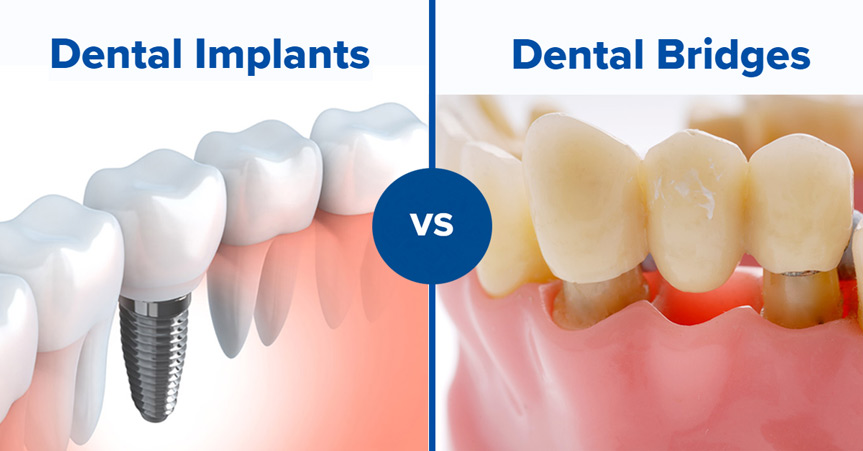SINGLE TOOTH REPLACEMENT
In the past, patients damaged two healthy teeth in order to replace just the visible portion of a single missing tooth. Called a dental bridge, crown and bridge, or fixed bridge, this treatment option placed dental crowns over healthy teeth connected to and supporting the replacement tooth. A single tooth implant replaces the entire tooth from the roots. A titanium implant post is positioned below the gum line in order to replace the lost root structure, and a custom dental crown is permanently attached for a natural look, feel, and function. In most cases, our implant team recommends implant supported tooth replacement for this reason, but there is no one solution that works for every patient. If you’re missing one or more teeth, contact us for a consultation.
SINGLE IMPLANT TOOTH REPLACEMENT PROCESS
Regardless of the number of teeth to be replaced, the dental implant process is follows the same basic three phase process.
- Preparation – once we’ve determined that dental implant supported tooth replacement is the right option, take 3D CAT scan and digital x-rays to gather a complete picture of the patient’s bone quality, width, height, and surrounding anatomy. All of this information is used by a lab to craft a custom dental crown to replace the missing tooth.
- Placement – the placement of the dental implant screw is the next step in the process. A small incision is made in the gum line and the screw is inserted into the soft tissue. Overtime, the supportive alveolar bone grows around the implant fusing naturally with titanium screw for optimal stability.
- Restoration – a 3D image will be used to virtually place the implant prior to surgery to minimize margin of error for a natural looking and feeling restoration.
IMPLANTS vs. FIXED BRIDGE
 Both crown and bridge and implant supported single tooth replacement have their advantages and disadvantages. It is essential that patients consider the effects of both options on their oral and overall health before making their final decision. Some things to take into consideration before choosing a fixed bridge or implant tooth replacement procedure include:
Both crown and bridge and implant supported single tooth replacement have their advantages and disadvantages. It is essential that patients consider the effects of both options on their oral and overall health before making their final decision. Some things to take into consideration before choosing a fixed bridge or implant tooth replacement procedure include:
- Oral and overall health condition – implants are more likely to be successful for patients who are in relatively good oral and overall health. Those who suffer from chronic health conditions like gum disease, diabetes, and high blood pressure may not be ideal candidates for implant restoration. For these patients, fixed bridges may be a better option. Those patients who are prone to tooth decay should consider implants replacement rather than crown and bridge in order to preserve healthy dental structure.
- Bone density – patients who have suffered from diminished jawbone density following the loss of a tooth may want to consider crown and bridge as implants may not have adequate support from the underlying bone. However, a single tooth implant may be beneficial in restoring bone health for these patients. Those patients who have osteoporosis and other bone health concerns throughout their body may not be candidates for dental implants.
- Position of the lost tooth – a lost back molar can be supported by a single crown in some cases, but this restoration is not as stable or long lasting as fixed bridges connected to two abutment crowns or dental implant replacement. In these cases, patients will likely be encouraged to choose implant supported tooth replacement.
Every smile is different and every treatment recommendation will be too. These are just a few of the many factors we consider before making a treatment recommendation. Schedule a tooth replacement consultation today to find out more, and get started down the road to smile restoration.

